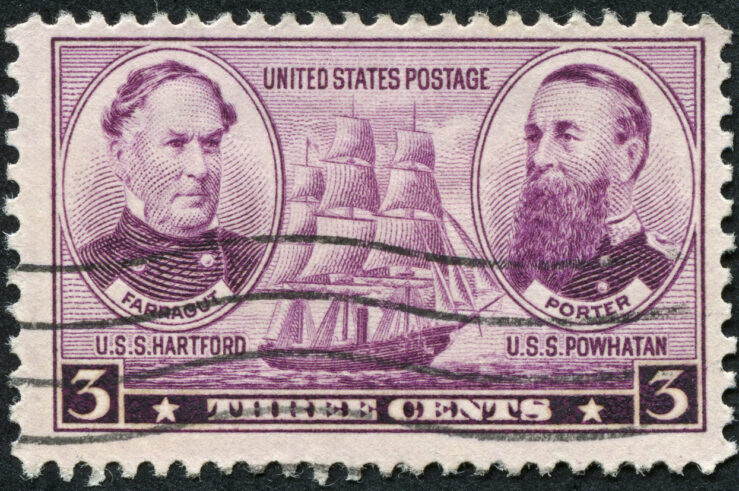FTC on the Gig Economy: The Glass is Almost Empty
The business press generally describes the gig economy that has sprung up around digital platforms like Uber and TaskRabbit as a beneficial phenomenon, “a glass that is almost full.” The gig economy “is an economy that operates flexibly, involving the exchange of labor and resources through digital platforms that actively facilitate buyer and seller matching.” ... FTC on the Gig Economy: The Glass is Almost Empty
Damn the Economics, Full Speed Ahead!
A White House administration typically announces major new antitrust initiatives in the fall and spring, and this year is no exception. Senior Biden administration officials kicked off the fall season at Fordham Law School (more on that below) by shedding additional light on their plans to expand the accepted scope of antitrust enforcement. Their aggressive ... Damn the Economics, Full Speed Ahead!
The FTC’s Pre-Acquisition Review Requirement for All Meta Deals: Hyper-Regulatory, Anti-Free Market, Anti-Rule of Law, and Anti-Consumer
The Federal Trade Commission (FTC) wants to review in advance all future acquisitions by Facebook parent Meta Platforms. According to a Sept. 2 Bloomberg report, in connection with its challenge to Meta’s acquisition of fitness-app maker Within Unlimited, the commission “has asked its in-house court to force both Meta and [Meta CEO Mark] Zuckerberg to ... The FTC’s Pre-Acquisition Review Requirement for All Meta Deals: Hyper-Regulatory, Anti-Free Market, Anti-Rule of Law, and Anti-Consumer
Potential Rulemaking on Commercial Surveillance and Data Security: The FTC Must Use Cost-Benefit Analysis
The Federal Trade Commission’s (FTC) Aug. 22 Advance Notice of Proposed Rulemaking on Commercial Surveillance and Data Security (ANPRM) is breathtaking in its scope. For an overview summary, see this Aug. 11 FTC press release. In their dissenting statements opposing ANPRM’s release, Commissioners Noah Phillips and Christine Wilson expertly lay bare the notice’s serious deficiencies. ... Potential Rulemaking on Commercial Surveillance and Data Security: The FTC Must Use Cost-Benefit Analysis
The Bitter Fruits of Federal Antitrust ‘Reform’ Legislation
Much ink has been spilled regarding the potential harm to the economy and to the rule of law that could stem from enactment of the primary federal antitrust legislative proposal, the American Innovation and Choice Online Act (AICOA) (see here). AICOA proponents, of course, would beg to differ, emphasizing the purported procompetitive benefits of limiting ... The Bitter Fruits of Federal Antitrust ‘Reform’ Legislation
Patent Eligibility, Competition, Innovation, Congress, and the Supreme Court
A highly competitive economy is characterized by strong, legally respected property rights. A failure to afford legal protection to certain types of property will reduce individual incentives to participate in market transactions, thereby reducing the effectiveness of market competition. As the great economist Armen Alchian put it, “[w]ell-defined and well-protected property rights replace competition by ... Patent Eligibility, Competition, Innovation, Congress, and the Supreme Court
Why FTC Competition Rulemaking Likely Will Fail
I. Introduction In over a century of existence, the U.S. Federal Trade Commission (FTC) has been a policy leader in developing American thinking about and in enforcing antitrust and consumer protection laws pursuant to several specific statutory mandates. It has also promulgated a substantial number of consumer protection rules, dealing with a wide variety of practices. ... Why FTC Competition Rulemaking Likely Will Fail
AICOA: An Affront to the Rule of Law
The fate of the badly misnamed American Innovation and Choice Online Act, S. 2992 (AICOA), may be decided by the August congressional recess. AICOA’s serious flaws have been ably dissected by numerous commentators (see, for example, here, here, here, and here). Moreover, respected former senior Democratic antitrust enforcers who have advocated more aggressive antitrust enforcement ... AICOA: An Affront to the Rule of Law
DOJ’s Threatened Reign of Error: Proposed Criminal-Monopolization Prosecutions
The Biden administration’s antitrust reign of error continues apace. The U.S. Justice Department’s (DOJ) Antitrust Division has indicated in recent months that criminal prosecutions may be forthcoming under Section 2 of the Sherman Antitrust Act, but refuses to provide any guidance regarding enforcement criteria. Earlier this month, Deputy Assistant Attorney General Richard Powers stated that ... DOJ’s Threatened Reign of Error: Proposed Criminal-Monopolization Prosecutions
Khan & Slaughter Make ITC Filing Supporting Policies that Would Undermine SEPs and US Innovation
Federal Trade Commission (FTC) Chair Lina Khan recently joined with FTC Commissioner Rebecca Slaughter to file a “written submission on the public interest” in the U.S. International Trade Commission (ITC) Section 337 proceeding concerning imports of certain cellular-telecommunications equipment covered by standard essential patents (SEPs). SEPs are patents that “read on” technology adopted for inclusion ... Khan & Slaughter Make ITC Filing Supporting Policies that Would Undermine SEPs and US Innovation
Chair Khan’s Latest Flawed Perspective on Mergers Ignores Empirics and Sound Economics
Federal Trade Commission (FTC) Chair Lina Khan missed the mark once again in her May 6 speech on merger policy, delivered at the annual meeting of the International Competition Network (ICN). At a time when the FTC and U.S. Justice Department (DOJ) are presumably evaluating responses to the agencies’ “request for information” on possible merger-guideline ... Chair Khan’s Latest Flawed Perspective on Mergers Ignores Empirics and Sound Economics
Labor Antitrust Analysis Should Focus on Actual Anticompetitive Agreements
Biden administration enforcers at the U.S. Justice Department (DOJ) and the Federal Trade Commission (FTC) have prioritized labor-market monopsony issues for antitrust scrutiny (see, for example, here and here). This heightened interest comes in light of claims that labor markets are highly concentrated and are rife with largely neglected competitive problems that depress workers’ income. ... Labor Antitrust Analysis Should Focus on Actual Anticompetitive Agreements
















